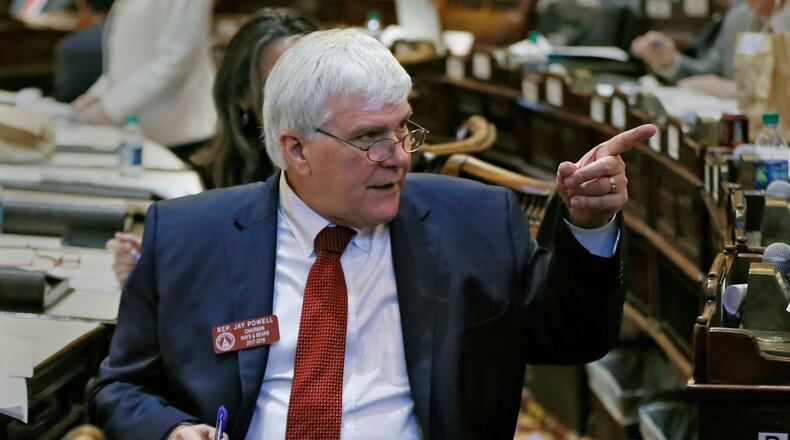A bill introduced Thursday proposes imposing taxes on streaming services like Netflix to help raise money for state-subsidized internet expansion in rural Georgia.
The legislation, House Bill 887, requires customers to pay sales taxes on video services such as Netflix, Hulu and Amazon Prime Video, as well as digital music and e-books.
In addition, a new communications tax would cover all phone and TV services, including cellphones, internet phones and satellite TV, which aren’t currently taxed.
Then the state government would would use its new revenue to supplement companies' cost of providing internet to the 16 percent of Georgians who live in rural areas without online access.
The rural internet legislation is the most significant result of recommendations made by the House Rural Development Council in December. State lawmakers say internet access is essential to business growth in sparsely populated areas of the state.
"You can't retain a business — much less attract a new business — if they don't have access to data and access to the internet," said House Ways & Means Committee Chairman Jay Powell, R-Camilla, the sponsor of the legislation. "We're hoping that what we do is broadband service in rural Georgia in five years or so."
The cost of the program is unclear, Powell said. Those figures will be researched during the legislative process this year.
Money raised from communication service and online streaming taxes would be dedicated to subsidizing internet companies’ construction costs.
The legislation proposes the creation of a “reverse auction,” where the state would essentially auction off government funding for internet lines in low-population areas. The internet service provider that needed the smallest subsidy to make internet service financially feasible in an area would win the funding.
A separate bill introduced in the state Senate on Wednesday also attempts to increase rural internet access.
Senate Bill 402 calls for the Georgia Department of Transportation to allow use of rights of way on highways for deployment of internet technologies. The legislation also outlines a plan to develop rural broadband infrastructure and seeks funding to expand rural internet through public and private grant programs.
“No Georgian should be denied the opportunities for economic development that are afforded by the internet because of where they live,” said Lt. Gov. Casey Cagle in a statement. “This legislation builds that foundation for growth, enabling our rural communities to access new resources and create new jobs.”
About the Author
Keep Reading
The Latest
Featured





